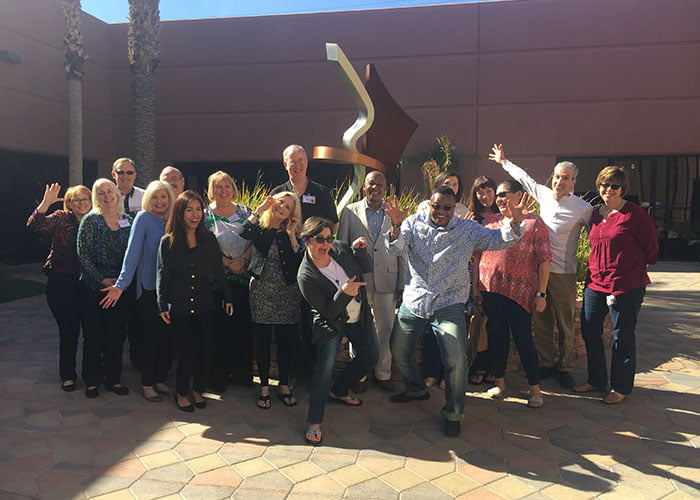As an Appreciative Inquiry practitioner, I consider it my primary (and on-going) responsibility to cultivate and deepen Appreciative Presence. Once this “hip-heart -head” aligned listening comes alive within us; what might be the next step in developing successful working relationships? What are the types of considerations of one another, our context(s) and choices before us we need to heed, and how do we navigate these together?
From Contract to Agreement:
As a coach, the notion of establishing a coaching contract at the start of any coaching engagement is central to the work. A coaching contract is multi-layered and clarifies expectations and responsibilities, both ways between coach and coachee, and any third-party role-players. “Contracting” – or “designing the alliance” – is widely considered so fundamental to successful coaching that some say it is 90% of the work.
Bringing this practice into the field of AI, I quickly realised the word “contract” can be ambiguous in certain contexts. The word “agreement” started to make more sense in referring to the guardrails we co-create for steering our engagement in the chosen direction. While there may be a paper contract detailing our terms of reference, we also need to establish the types of person-to-person agreements on what we’re doing, why we’re doing it and how we’ll bring out the best in one another while we do it. As in coaching, these agreements are made at a professional, psychological and practical level.
From Agreement to Appreciative Agreements (AAs):
While I’d been experimenting with Appreciative Agreements in my private practice, the first time we used it publicly, was on assignment in Nairobi, 2011. Kathy Becker and I were facilitating a two-week, evolving Summit process with numerous role-players coming together from multiple countries across the region. To co-design a cohesive, united, working agreement within our richly diverse team seemed essential.
We wanted to invite every voice to be heard on what they wished to achieve from our time together. (Embedded in this is clarifying the rationale for why we are here doing this work together.) What are the wishes for the ideal outcomes of this engagement, and what might be its success indicators? This, to borrow from Transactional Analysis coaching, is our professional level of appreciative agreement.
Once we’d agreed on why we’re here experiencing AI, and what we aim to gain from it, our next level of agreement is psychological – meaning it refers to relationship safety, power dynamics, values and organisational culture. How will we be with one another, to bring out the best in every person? How might we “be” that will make the “what” inevitable?
Thirdly, we agree on who, where, by when and other logistics at the practical level of agreement (in collaboration with a Core Team.)
What makes these agreements appreciative, is two-fold:
- AAs are formulated using the Appreciative Process, and
- AAs are framed by focusing on what we value and appreciate, rather than what we don’t.
Thus, Appreciative Inquiry informs both the content and process by which Appreciative Agreements are generated.
More about the Appreciative Process and Core Teams coming soon.
Ezelle Theunissen is a community psychologist and coach supporting individuals, teams and organisations align their values, strengths and unique lived experiences towards making a meaningful difference in the world. Social and environmental justice are close to her heart and she favours whole systems and person-centred approaches.


Add your comment now using your favorite social account or Click Here To Login
